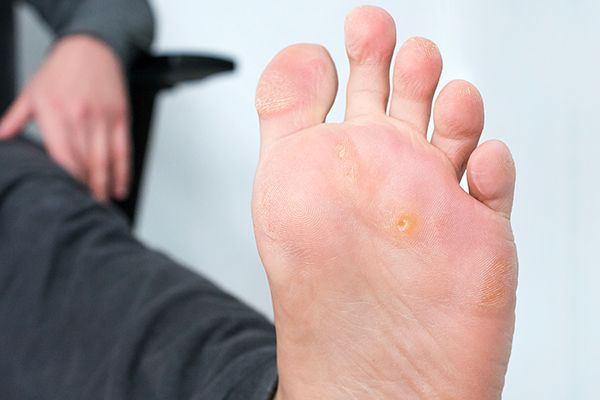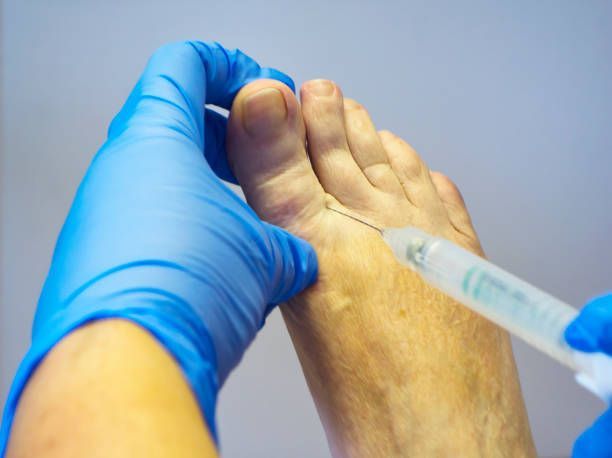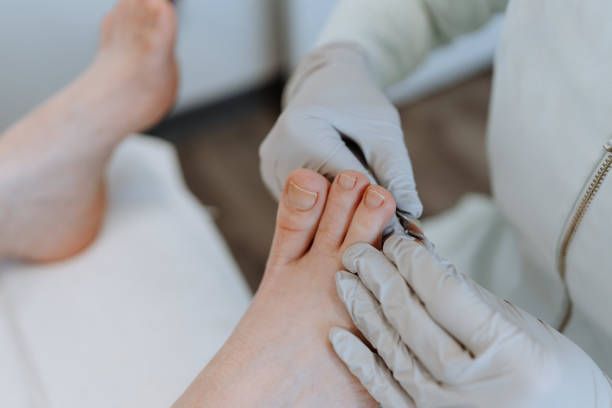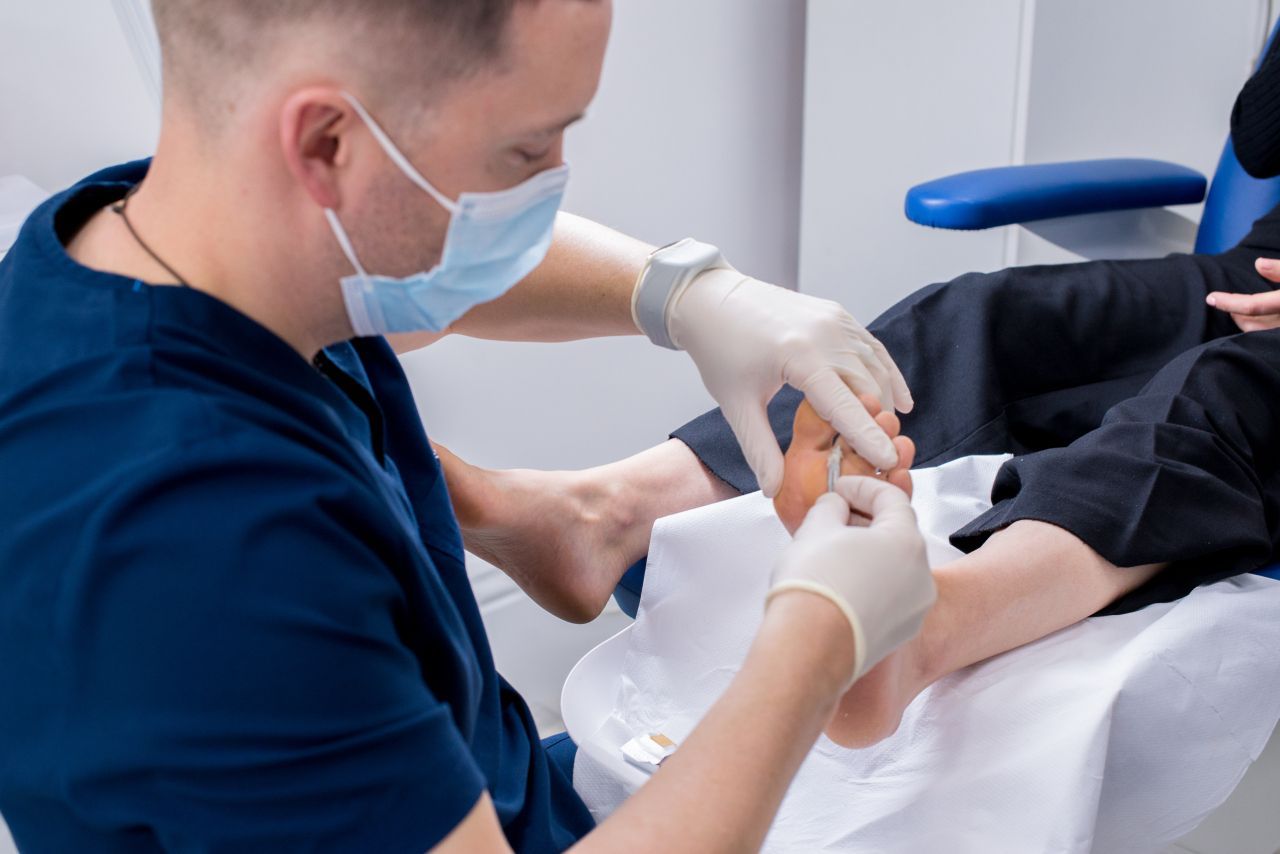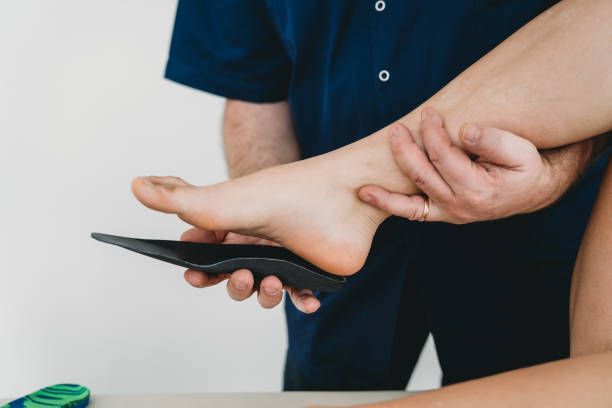PLANTAR FASCITIS & HEEL PAIN TREATMENT DUBLIN FOOT CLINIC EXCEPTIONAL HEEL CARE TRUSTED – EFFECTIVE – INNOVATIVE
PLANTAR FASCIITIS
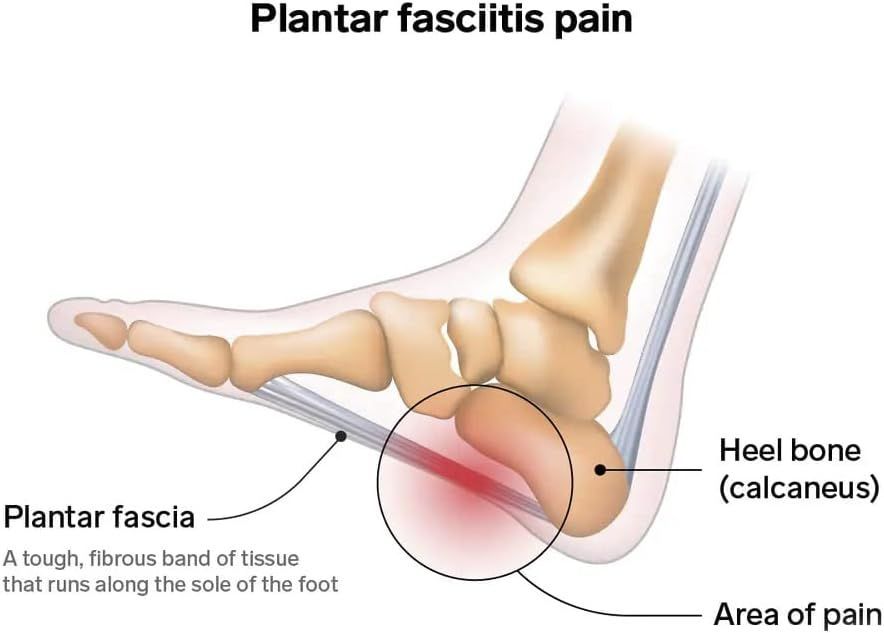
WHAT IS PLANTAR FASCIITIS?
Plantar fasciitis is a painful inflammatory heel condition affecting the large ligament-type structure in the base of the foot that can cause arch pain and heel pain. The plantar fascia can become thick and inflamed due to the irritation at its attachment, at the base of the heel bone. In some patients, small tears can develop and these people suffer from acute pain that can be excruciating. Sometimes, on x-ray, heel spurs can be seen, but these are not usually the cause of the patient’s heel pain.
It should be noted that “heel spurs” is a misleading diagnosis that has been used by podiatrists and doctors for many years. More and more practitioners today are open to the fact that heel spurs are not the problem and that these bone spurs don’t cause pain. Instead, the source of pain is the inflammation within the plantar fascia surrounding the spur itself.
WHAT DOES IT FEEL LIKE?
Patients with plantar fasciitis usually feel pain under the ball of the heel and it can represent a stone bruise sensation. Arch pain is less common but is also a key symptom of the condition. The heel pain is common first thing in the morning when climbing out of bed and after periods of rest, such as driving or being seated. The pain in the heel can be erratic and often, there are pain-free periods when the person feels like they are healing. If there is a very sudden onset of pain, as opposed to a gradual onset, this may be due to tearing of the plantar fascia.
CORRECT DIAGNOSIS
It is important that the podiatrist differentiates between regular plantar fasciitis, and plantar fascia tearing as the treatment is different. Your podiatrist will also be able to exclude the possibility of a stress fracture, which sometimes leads to similar symptoms. Ultrasound imaging may be necessary to accurately diagnose the cause of the patient’s heel pain.
At Sydney Heel Pain, our podiatrists are highly experienced and skilled in the diagnosis and treatment for your heel pain
THE STAGES OF PLANTAR FASCIITIS
INITIAL STAGES OF PLANTAR FASCIITIS
Initially, these heel pain patients may feel a dull ache in the base of the heel. There may be an awareness of a problem in the afternoons, or after they have been weight-bearing for long periods of time. It is possible that they feel some pulling in the plantar fascia, which they describe as a tightness in the arch or the sole of the foot.
Early treatment or intervention at this stage is crucial and may inhibit the development of a more chronic heel pain condition. Unfortunately, many patients ignore the early symptoms, presuming or hoping that the tightness or the dull ache in the heel will settle down and dissipate. In some people, this is the case, but others can develop severe heel pain and/or chronic P.F.
As sports podiatrists, the typical symptoms that we hear in these early stages, are the feeling of a pebble in the shoe or a stone bruise sensation. Patients with mild P.F sometimes inform us that they felt like they had stepped on a small pebble or stone.
In these early stages that we describe above, the condition does not always induce heel pain throughout the daytime. The symptoms may only be present in the morning when getting out of bed and can be very sporadic. Some patients are asymptomatic for a day or two only to find the pain returning.
In the early stages, there can also be some heel pain in the morning when the foot hits the floor, but this is usually mild and is often little more than a feeling of tightness.
CHRONIC PLANTAR FASCIITIS
When the condition is fully developed, the symptoms of plantar fasciitis heel pain are more acute. The condition will become chronic if the strain on the plantar fascia goes on for long enough and remains untreated.
The pain in the heel is more consistent and patients will usually report pain, not just stiffness, each morning when hopping out of bed. Most patients hobble for at least 5 minutes after getting out of bed due to extreme plantar fasciitis heel pain.
The pain in the heel usually subsides within 15 minutes and patients are usually more comfortable after taking a hot shower. Walking throughout the day isn’t always a problem as the inflammatory change in the plantar fascia is less consistent and the heel pain isn’t always present.
However, mid-afternoon, after several thousand steps the foot fatigues, and the heel pain returns. Patients will sometimes report pain when getting out of their car after a drive home from work. They hobble again for the first few minutes and find some relief after walking a short distance.
Podiatrists are often informed by their patients that they also limp when they stand up after being seated for dinner in the evenings or after sitting on the couch watching television. An ultrasound report will often show thickening of the plantar fascia, due to inflammatory change.
SEVERE PLANTAR FASCIITIS
If the condition comes on very quickly, during a one-off event or during a particular day/activity then the pain can feel severe/acute. Alternatively, chronic plantar fasciitis left untreated can lead to the same state.
ACUTE INFLAMMATION
In these cases, the strain on the plantar fascia has been so great and so repetitive that acute inflammation develops as does extreme pain. Patients with severe P.F will usually describe to the sports podiatrist an extreme level of pain that is present for most of the day. These patients will experience throbbing when sitting or lying down and are starting to feel the psychological effects of having a condition that is both chronic and acute.
Often described as “excruciating” or “relentless”, heel pain plantar fasciitis patients experience symptoms that affect their daily lives, as they stop exercising and are often struggling to walk during day-to-day movements.
Some patients with severe P.F have developed deep surface or laminar tears in the fascia. As sports podiatrists, we arrange ultrasound scans, to help confirm or exclude torn fascia. X-rays are less helpful in the case of this soft tissue injury.
WHO SUFFERS FROM PLANTAR FASCIITIS HEEL PAIN?
ADULTS
Plantar fasciitis can affect men and women equally, but there is a trend in terms of the age of the patients that we treat. Fewer people younger than 30 years of age develop the condition, and the majority of patients are over 60. In between those ages, there is a large percentage of male and female patients in their 40’s and 50’s.
Sedentary people who haven’t exercised for some time, who enter a get fit health program of sorts, and those who join a boot camp, will often develop pain in the heel or Achilles tendon, namely plantar fasciitis, Achilles Tendonitis or other rearfoot issues, is crucial in these cases to prevent further complications.
EXPERIENCED PODIATRISTS
Our podiatrists in Dublin and Athlone have extensive experience in these conditions and can determine which one your child has, by carrying out a careful physical examination. We will refer for x-ray or ultrasound scans if we deem them necessary.
CAUSES OF PLANTAR FASCIITIS
MULTIFACTORIAL CAUSES
There is no single cause of plantar fasciitis. The cause is multifactorial, as is the plantar fasciitis treatment. Ultimately, there is an increased load on the plantar fascia which causes it to become pathological. Tight calf muscles and soft shoes are a big problem, as are flat feet and an increase in body weight. Biomechanical issues leading to poor foot function can also trigger the condition. Patients who suddenly increase the amount or frequency of sporting activity/exercise are also at risk.
We often hear patients saying, “I was looking to get fit after Christmas and was training several times a week, and then my heel became extremely painful…”
If you would like to see one of our podiatrist regarding Plantar Fascittis- PLease call us on 01-5397834 or book online to visit our clinic.
Priory Foot Clinic, Merrion foot clinic Dublin, Athlone Foot clinic Westmeath.
